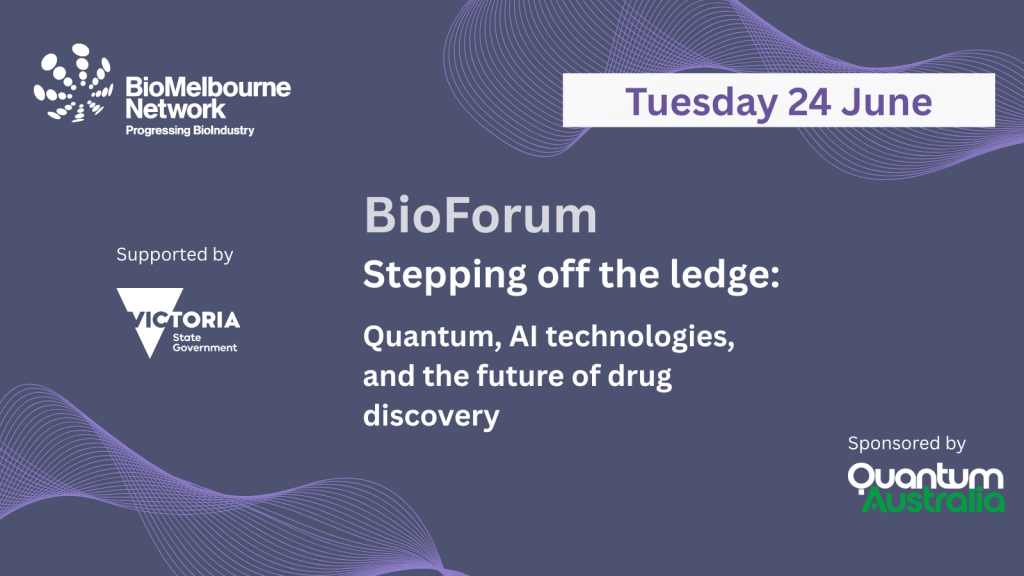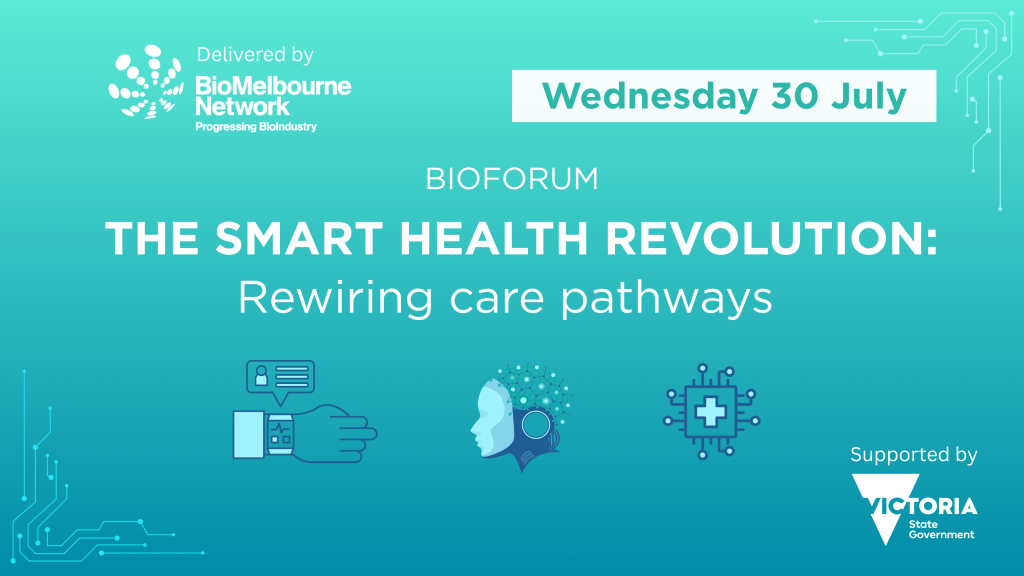
- This event has passed.
BioForum – Developing an Australian Novel Vaccine: The UQ/CEPI/CSL Coronavirus Vaccine Development Project
June 26, 2020 @ 10:30 am - 11:50 am AEST
Event Navigation
An extraordinary project, in extraordinary times.
Learn about the processes, protocols, planning steps, key questions, and indicators of success alongside a discussion of the challenges involved in moving through translation, clinical planning, scale-up and manufacturing at lightning speed.
The University of Queensland entered into a partnering agreement with the Coalition for Epidemic Preparedness Innovations (CEPI) in January 2019, to develop a “molecular clamp” vaccine platform, a transformative technology that enables targeted and rapid vaccine production against multiple viral pathogens. In January 2020, that partnership was expanded to develop that platform in order to produce a vaccine candidate against COVID-19.
In order to rapidly progress the vaccine candidate into the clinic and beyond UQ has been joined by CSL as full development partner and ‘trusted manufacturer’.
First in human trials are planned to take place in July 2020 and planning is well underway for the scale-up manufacturing at CSL Broadmeadows recombinant manufacturing facility to support Phase 2 and 3 trials, then provision to Australia and globally.
Work that would normally take years has been accelerated into weeks and months, and planning that would typically take place sequentially is occurring simultaneously. How has this work occurred with such unprecedented speed, and what are the risks involved in completing steps of a vaccine development pathway in parallel?
Event details
Date: Friday 26th June 2020
Time: 10:30 am – 11:50 am AEST
Format: This event will be delivered on a virtual platform – you will receive a link to join via confirmation email prior to the event.
Registration: BioMelbourne Network Members: $35; Non-members: $45
Unsure if your organisation is a member? Check our member directory.
Submit a question for our speakers ahead of time.
We appreciate your ongoing support for the delivery of BioMelbourne Network events.
Speakers
Professor Paul Young, Professor of Virology and Head of School, School of Chemistry and Molecular Biosciences, University of Queensland
Professor Kanta Subbarao, Director, WHO Collaborating Centre for Reference and Research on Influenza and Honorary Professorial Fellow in the Department of Microbiology and Immunology, University of Melbourne (at the Peter Doherty Institute for Infection and Immunity)
Dr David Glover, Global Head, Process Engineering (Recombinant & Gene Therapy Products), CSL Behring
Dr Frank Albano, Global Clinical Program Director, Seqirus
Read more about our speakers and panelists below.
Facilitator
Professor Trent Munro, Director of the National Biologics Facility and Program Director for the Rapid Response Vaccine Pipeline, University of Queensland
Cancellation Policy:
Full refund given up to 3 days prior to the event.
No refunds within 3 days of the event.
Professor Paul Young, Professor of Virology and Head of School, School of Chemistry and Molecular Biosciences, University of Queensland
Professor Kanta Subbarao, Director, WHO Collaborating Centre for Reference and Research on Influenza and Honorary Professorial Fellow in the Department of Microbiology and Immunology, University of Melbourne (at the Peter Doherty Institute for Infection and Immunity)
Kanta is a virologist and a physician with specialty training in paediatric infectious diseases. She received her M.B.B.S. from Christian Medical College, Vellore in India, completed training in paediatrics and paediatric infectious diseases in the US and earned an M.P.H. in epidemiology from the University of Oklahoma Health Sciences Center and received postdoctoral training in the Laboratory of Infectious Diseases, NIAID, NIH.
Her research is focused on newly emerging viral diseases of global importance including seasonal and pandemic influenza, severe acute respiratory syndrome (SARS), Middle East Respiratory Syndrome (MERS) and now COVID-19. Her research includes the study of virus biology and pathogenesis, immune responses to infection and vaccination, development and preclinical and clinical evaluation of vaccines and evaluation of antiviral drugs. She is an internationally recognised leader in the field of emerging respiratory viruses with a sustained record of research excellence.
Dr David Glover, Global Head, Process Engineering (Recombinant & Gene Therapy Products), CSL Behring
Following postgraduate spells in veterinary vaccine development and enzyme production, David received his PhD in Biochemistry from the University of Birmingham in the UK.
He spent 13 years in the UK developing biopharmaceutical manufacturing processes for novel recombinant proteins and conjugates at Celltech, GlaxoSmithKline and UCB, culminating in the licensure of the first PEGylated anti-TNF therapy for rheumatoid arthritis and other TNF mediated inflammatory diseases.
David joined CSL in Melbourne in 2010, ultimately becoming Executive Director, BioProcess Development. A highlight in his time in CSL R&D was licensure of a long-acting, recombinant albumin-fusion protein for the treatment of Haemophilia B.
In May 2020, David moved into CSL Behring’s End-to-End Operations organisation to head the newly formed Process Engineering department for Recombinant and Gene Therapy products.
Dr Frank R. Albano, Global Clinical Program Director, Seqirus
Upon return to Melbourne in 2004, Dr. Albano worked in large pharmaceutical companies Aventis and later Sanofi, as well as a contract research organisation in several clinical operations roles.
In 2007 Dr Albano was recruited to Seqirus leading the seasonal and pandemic influenza vaccine clinical operations and development group as well as clinical operations roles within the blood/plasma product development team. Dr Albano has over 16 years’ experience in clinical operations and development.
Dr Albano completed an MBA at Deakin University in 2016.






